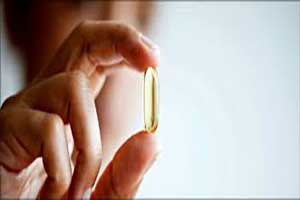- Home
- Editorial
- News
- Practice Guidelines
- Anesthesiology Guidelines
- Cancer Guidelines
- Cardiac Sciences Guidelines
- Critical Care Guidelines
- Dentistry Guidelines
- Dermatology Guidelines
- Diabetes and Endo Guidelines
- Diagnostics Guidelines
- ENT Guidelines
- Featured Practice Guidelines
- Gastroenterology Guidelines
- Geriatrics Guidelines
- Medicine Guidelines
- Nephrology Guidelines
- Neurosciences Guidelines
- Obs and Gynae Guidelines
- Ophthalmology Guidelines
- Orthopaedics Guidelines
- Paediatrics Guidelines
- Psychiatry Guidelines
- Pulmonology Guidelines
- Radiology Guidelines
- Surgery Guidelines
- Urology Guidelines
Excessive vitamin D may lead to kidney failure- Too much of good thing turning bad

Too much of good thing may not be good always, in fact, it may turn rather bad. This saying goes apt for a 54-year-old man in whom high doses of vitamin D ultimately lead to kidney damage characterized by significantly increased levels of creatinine. The case has been published in the Canadian Medical Association Journal.
Vitamin D is a hormone known for its bone health benefits: It's necessary for the absorption of calcium and phosphorus into bones and teeth. Without enough vitamin D, calcium leaches out of the bones, resulting in loss of bone strength. This can lead to rickets in children and osteomalacia or osteoporosis in adults. It is a is a regulator of inflammation and plays an important role in the immune system and therefore use of vitamin D supplements has witnessed a tremendous increase in the last decade.
In the instant case, a man was on his trip to Southeast Asia where he has spent much of his holiday extensively sunbathing for about 6-8 hours per day for two weeks. On his return to Canada, he showed increased levels of creatinine from his baseline of 100 μmol/L to 132 μmol/L., suggesting kidney damage or malfunction. His medical history included hypertension, dyslipidemia, and gout.
On seeing the symptoms his family physician instructed him to discontinue his antihypertensive and diuretic agents temporarily on the premise that he had possible extracellular fluid depletion from the heat exposure. Despite this measure, on repeat measurement 4 weeks later, the patient’s creatinine level had risen to 376 μmol/L.
Also Read: Even recommended dose of Vitamin D with calcium may increase kidney stone risk
After referral to a kidney specialist and further testing, it was discovered that he had been prescribed high doses of vitamin D by a naturopath, who recommended a dose of 8 drops every day. Over 2 ½ years, the patient, who did not have a history of bone loss or vitamin D deficiency, took 8-12 drops of vitamin D daily, totaling 8000-12 000 IU. As a result, he had very high levels of calcium in the blood, which left him with significant kidney damage.
The recommended daily allowance is 400-1000 IU, with 800-2000 IU recommended for adults at high risk of osteoporosis and for older adults.
"Vitamin D toxicity can occur over a short period in patients ingesting large doses of vitamin D, either intentionally or inadvertently. The literature supports that doses greater than 10 000 IU per day for several months may lead to toxicity (> 200 nmol/L of 25-hydroxyvitamin D3)," write the authors.
Also Read: Active Vitamin D has no mortality benefit in Kidney failure: JAMA
"Although vitamin D toxicity is rare owing to a large therapeutic range, its widespread availability in various over-the-counter formulations may pose a substantial risk to uninformed patients," writes Dr. Bourne Auguste, a Clinical Fellow in Home Dialysis at Toronto General Hospital and the University of Toronto.
"Our experience informs us that patients and clinicians should be better informed about the risks regarding the unfettered use of vitamin D. Given new findings from the US Preventive Services Task Force, current Canadian guidelines regarding its use in low-risk individuals should be revisited," the authors suggest.
For detailed case study follow the link: https://doi.org/10.1503/cmaj.180465

Disclaimer: This site is primarily intended for healthcare professionals. Any content/information on this website does not replace the advice of medical and/or health professionals and should not be construed as medical/diagnostic advice/endorsement or prescription. Use of this site is subject to our terms of use, privacy policy, advertisement policy. © 2020 Minerva Medical Treatment Pvt Ltd